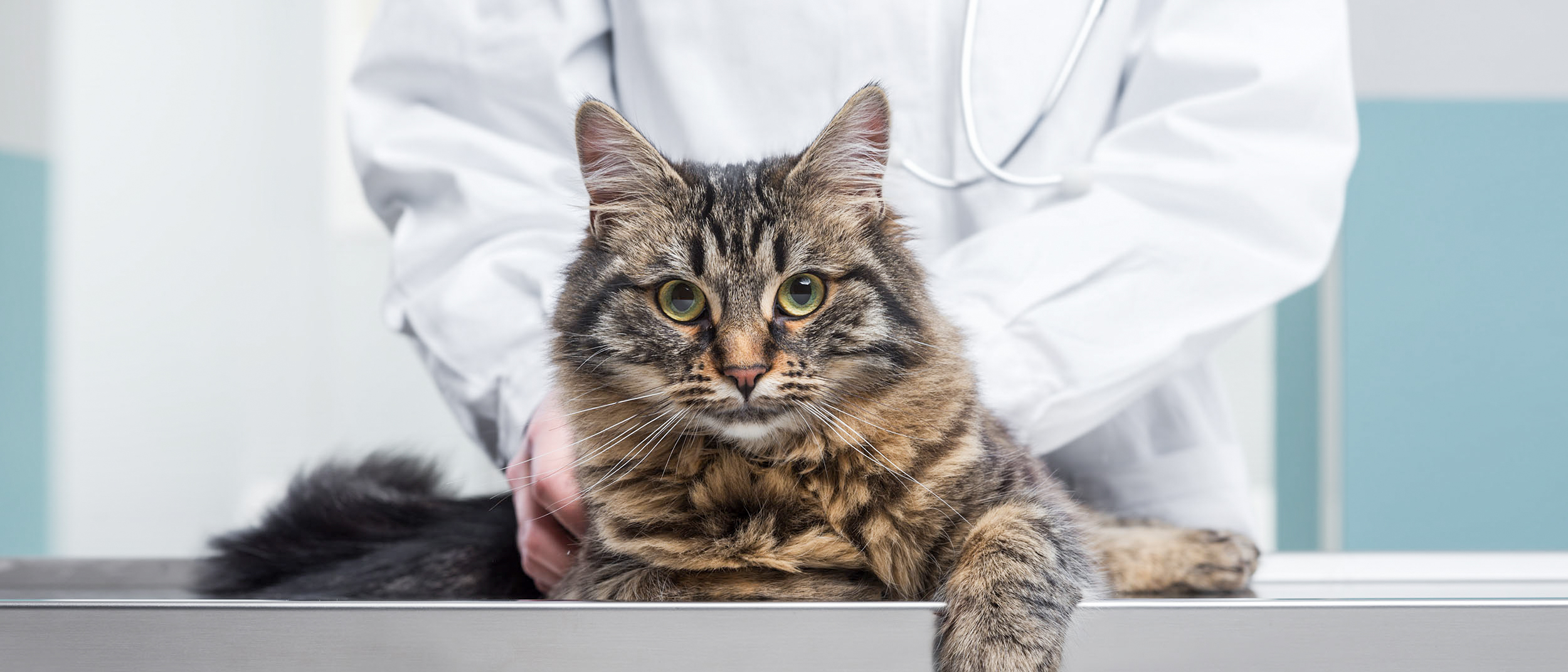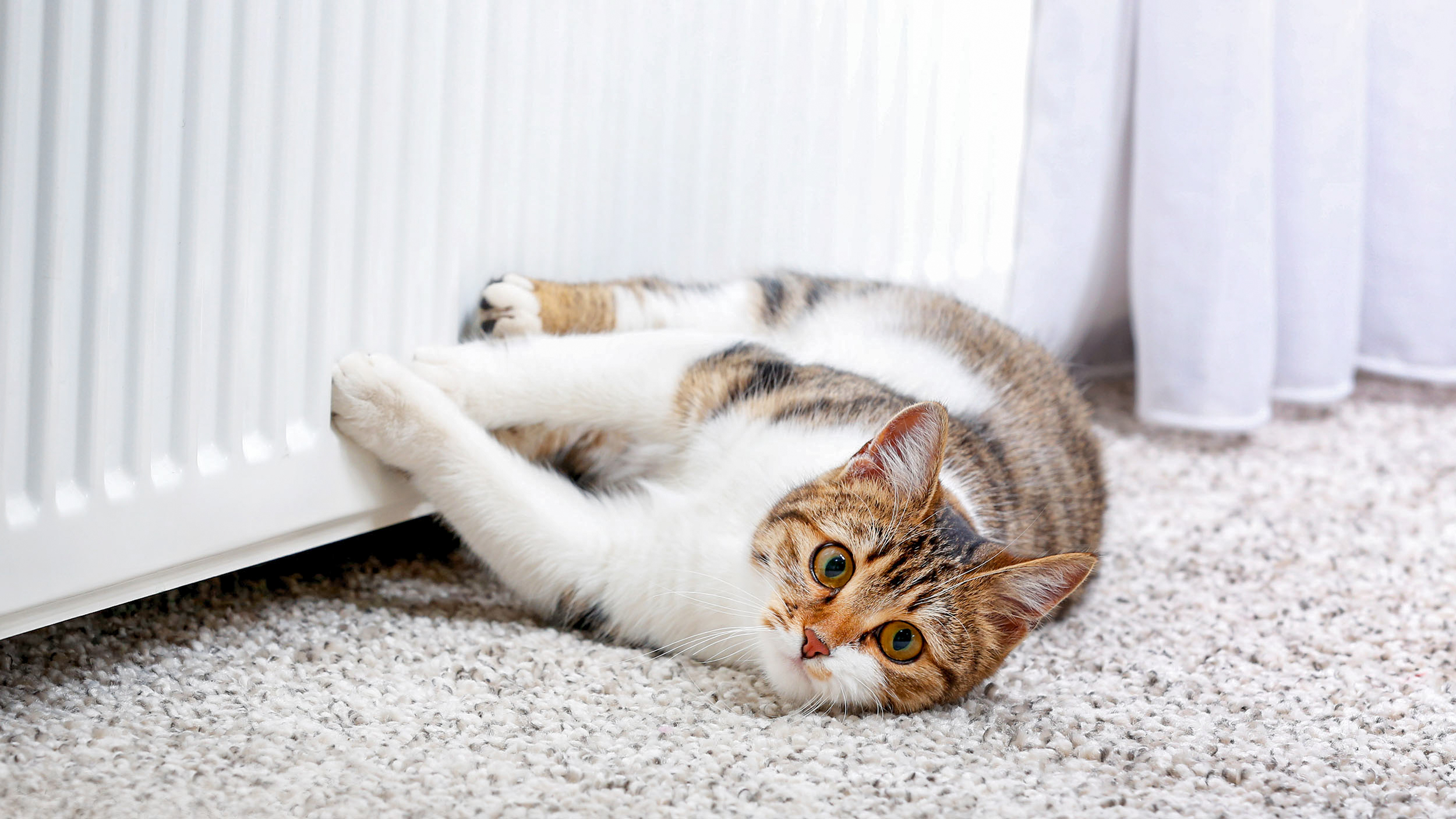How much should a cat weigh?

Although your cat’s weight will change over the course of its life, it’s important you’re able to recognise when their weight – either too much or too little – is becoming a health problem. This can be hard if the weight increase or decrease has happened slowly, but there are several things you can look out for.
Know which cats are predisposed to weight gain
The cats which are most at risk of weight gain are:
- Short-haired European type cats, rather than pure breeds
- Five to 10 years old with reduced activity levels
- Male cats
- Those which have been sterilised, as this can trigger rapid weight gain
- Those which are fed freely and more than is recommended
- Indoor cats with limited access to exercise and play
Know how to check your cat’s weight
There are many variables which affect a cat’s weight, including its unique size, its breed, sex and age . This means weighing your cat and comparing it to an ‘ideal weight’ isn’t always accurate. Instead, you can check your cat at home with a few simple steps.
When looking at your cat in profile from above, you should be able to see its bones clearly, including the hollow of its flank and a clear distinction between its thorax and abdomen (chest and stomach). If its outline is very pronounced, your cat may be underweight; if the outline is expanded with little definition, your cat may be overweight.
By feeling your cat you can get a good idea of whether its weight is healthy or not. Gently see if you can feel and count its ribs, feel its back vertebrae and muscles, and a pocket of stomach fat. You can then use this to see if your cat’s weight should be of concern:
- If you can feel its ribs but they’re not visible, your cat is an ideal weight
- If you can feel the ribs but not count them, your cat is overweight
- If you can’t feel the ribs at all, your cat is obese
It’s important to take your cat to your vet if you have any concerns about its health; your vet may perform the same examination plus other tests to determine your cat's weight.

Know the warning signs for your cat’s weight
If you notice that your cat is losing or gaining weight very suddenly, this can indicate a greater underlying problem. If their weight loss or gain is accompanied by digestive problems, vomiting, diarrhoea, changes in their skin or coat quality, and changes in their mood, it’s crucial to consult a vet who will be able to make a full diagnosis.
When your cat is its ideal weight, it will have a much better chance to lead a healthy, contented life involving a good diet, play, exercise and companionship. Recognising when its weight may be a problem means you’re able to pick up on any issues quickly and resolve them, getting your cat back on the path to a long and healthy life.
Related Articles
Find a vet
If you have any concerns about your cat’s health, consult a vet for professional advice.
Like & share this page